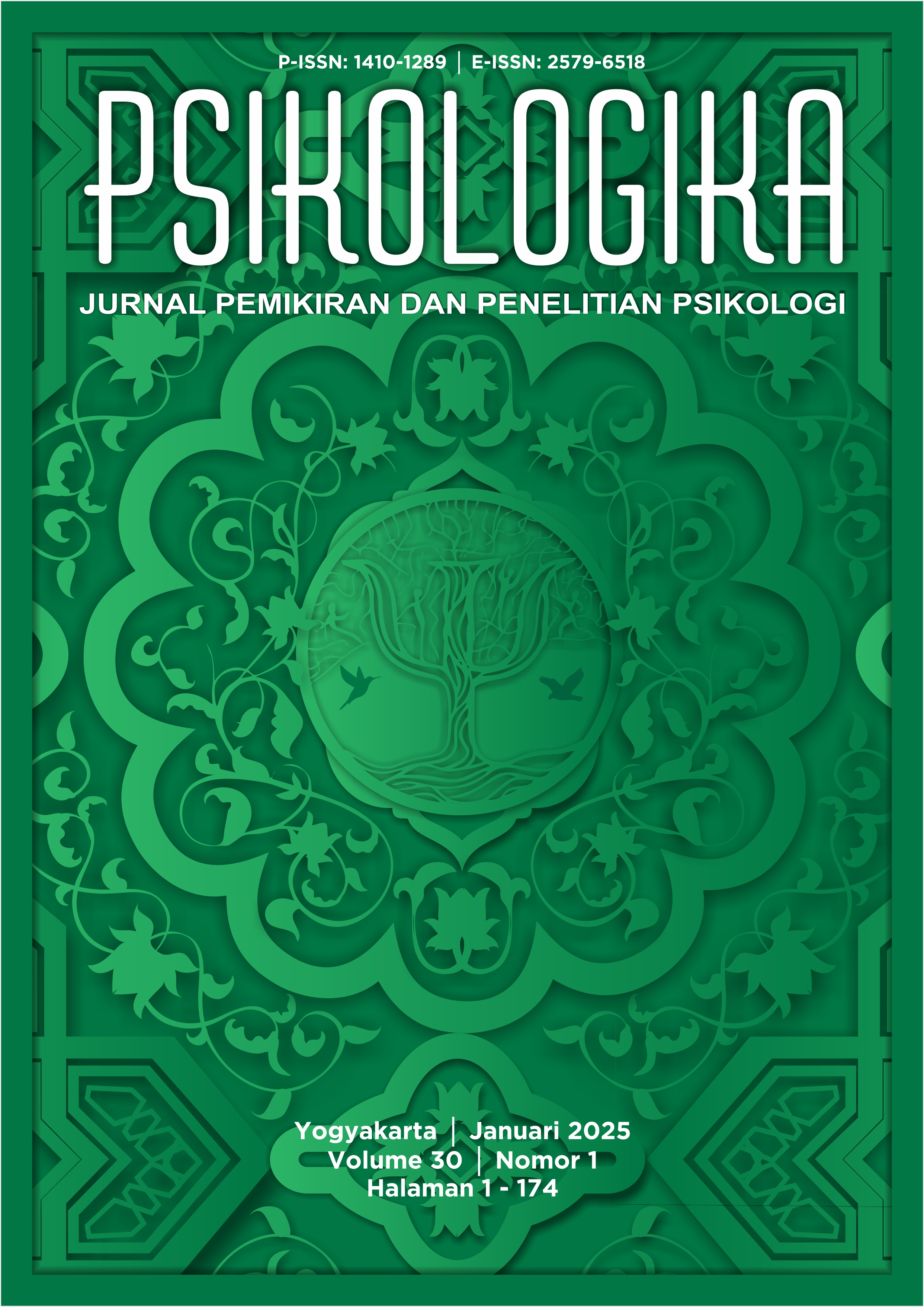Main Article Content
Abstract
Resilience is a crucial ability for late adolescents with divorced parents to face daily life post parental issues. In this context, social support and self-efficacy have a relationship and role with resilience. Therefore, this research aimed to show the simultaneous relationship between social support and self efficacy with resilience using a quantitative method. Data collection tools used were The Connor-Davidson Resilience Scale (CD-RISC), The Multidimensional Scale of Perceived Social Support (MSPSS), and the General Self Efficacy Scale (GSES). The subjects were 105 late adolescents with divorced parents in Indonesia. Furthermore, Pearson correlation analysis and multiple linear regression were adopted. The results showed that social support and self-efficacy had a significant positive influence on resilience. The higher the role of social support and self-efficacy, the greater resilience of late adolescents with divorced parents. The results had implications for managing social support with self-efficacy to increase resilience in late adolescents with divorced parents.
Keywords
Article Details
Copyright (c) 2025 Nita Trimulyaningsih, Jihan Nur Afifah

This work is licensed under a Creative Commons Attribution-ShareAlike 4.0 International License.
Authors who publish with this journal agree to the following terms:
- Authors retain copyright and grant the journal right of first publication with the work simultaneously licensed under a Creative Commons Attribution-ShareAlike 4.0 International License that allows others to share the work with an acknowledgment of the work's authorship and initial publication in this journal.
- Authors are able to enter into separate, additional contractual arrangements for the non-exclusive distribution of the journal's published version of the work (e.g., post it to an institutional repository or publish it in a book), with an acknowledgment of its initial publication in this journal.
- Authors are permitted and encouraged to post their work online (e.g., in institutional repositories or on their website) prior to and during the submission process, as it can lead to productive exchanges, as well as earlier and greater citation of published work (See The Effect of Open Access).




